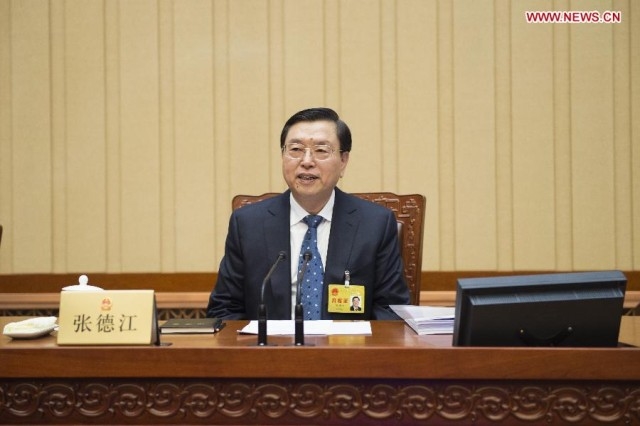Chinese lawmakers began reviewing draft legislation for the country’s first anti-terrorism law on Wednesday, to better counter terrorist activity while protecting citizens’ rights.
The draft proposal, which comes weeks after fatal attacks in Paris, France, and Copenhagen, Denmark, is China’s latest attempt to address terrorism at home and help maintain world security.
Explaining the draft at a bi-monthly session of the Standing Committee of the National People’s Congress (NPC), Su Zelin, deputy director with the Commission for Legislative Affairs of the NPC Standing Committee, said in the wake of new developments in the world’s war on terrorism, China is facing a “new situation” in terms of its legislative work.
The draft law, when passed, could strengthen China’s counter-terrorism efforts, he said.
One notable change in Wednesday’s text, tabled for a second reading this time, is an updated definition of the term “terrorism”.
According to the new draft, terrorism is defined as “any speech or activity that, by means of violence, sabotage or threat, generates social panic, undermines public security, and menaces government organs and international organizations.”
The definition of terrorism in an earlier draft, submitted in October, also included “thoughts” in addition to “speeches and activities”, but these were deleted for the sake of accuracy and applicability.
In addition, the draft proposed better aerospace control in China to guard against potential drone attacks.
It also sought to strike a balance between combating extremism and protecting people’s rights.
In particular, security authorities’ access to citizens’ information via telecom and Internet technology now must undergo “strict approval procedures”, and information obtained in accordance with the draft law could only be used for the purpose of counter-terrorism operations, the draft stressed.
Approval must also be obtained to inquire into, seal up, seize and freeze suspicious assets linked to terrorist activity, it read.
The new draft has come at a delicate time in China, as the country will mark the one-year anniversary of a deadly terrorist attack in southwest China’s Yunnan Province on Sunday.
The report compiled information from Xinhua News.
 CGTN America
CGTN America Zhang Dejiang, chairman of the Standing Committee of China’s National People’s Congress (NPC), presides over the 13th meeting of the 12th NPC Standing Committee, at the Great Hall of the People in Beijing, capital of China, Feb. 25, 2015. (Xinhua/Xie Huanchi)
Zhang Dejiang, chairman of the Standing Committee of China’s National People’s Congress (NPC), presides over the 13th meeting of the 12th NPC Standing Committee, at the Great Hall of the People in Beijing, capital of China, Feb. 25, 2015. (Xinhua/Xie Huanchi)
